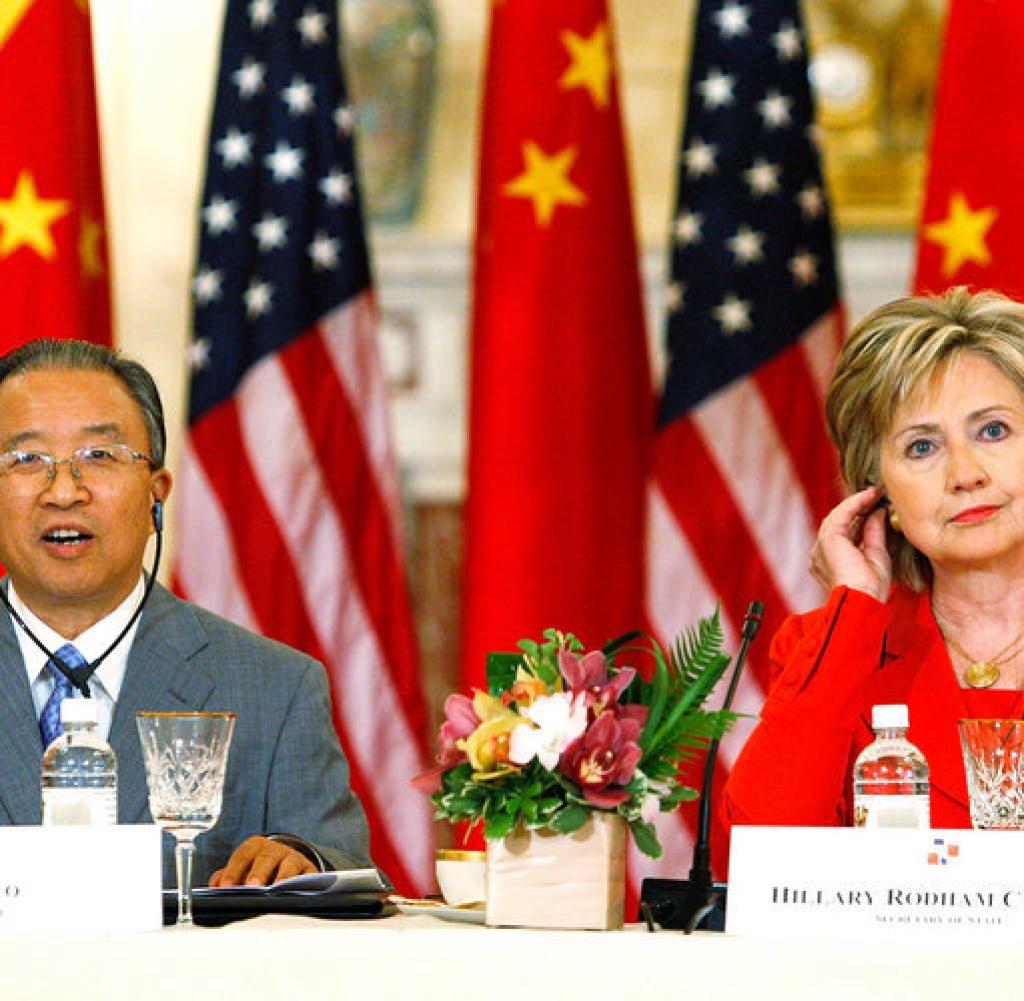They also signed a memorandum on climate change, energy and the environment without setting any firm goals, and pledged their support for free trade.
"Laying this groundwork may not deliver a lot of concrete achievements immediately but every step on this path to create confidence and understanding is a very good investment,“ U.S. Secretary of State Hillary Clinton told a news conference.
Perhaps the biggest accomplishment was that both countries agreed they need to reconfigure their economies so that China is less reliant on exports for growth and the United States resumes saving and investment to stop the boom-and-bust cycle.
"China will rebalance towards domestic demand-led growth,“ U.S. Treasury Secretary Timothy Geithner said, while the United States had already learned the "importance of living within our means as a country and at a household level.“
Clinton lauded the discussions as a symbol of 30 years of progress between two countries with a history of deep diplomatic and ideological divides. Yet there were signs that the two sides were still struggling to bridge the gap.
On issues from North Korea to human rights, Clinton said little more than that the two sides had talked.
"Human rights is absolutely integral to the strategic and economic dialogue,“ she said. "We discussed a number of human rights issues, including the situation in Xinjiang, and we expressed our concerns.“
Clashes broke out in July between ethnic Uighurs and Han Chinese in western China’s Xinjiang province, and around 50 Uighurs chanted slogans outside the White House on Tuesday demanding freedom and democracy.
CURRENCY PROBLEM
Washington at least publicly steered clear of one of the thorniest issues -- urging China to allow its currency to rise faster. However, Beijing did take a sharper tone, warning against letting the dollar slide too far.
"As a major reserve currency-issuing country in the world, the United States should properly balance and properly handle the impact of the dollar supply on the domestic economy and the world economy as a whole,“ Vice Premier Wang Qishan said earlier on Tuesday.
The United States would like to see a stronger yuan to help correct trade imbalances, but China remains dependent on its export sector, and would stand to lose from a dollar fall that would reduce the value of its substantial dollar holdings.
"The currency issue is to some extent being back-burnered because that’s a fundamental problem,“ Stanley Marcus, a trade expert with law firm Bryan Cave, told Reuters Television.
"I think the administration’s decided at least for now to subsume (currency) under some larger issues like economic reform, financial reform, and other important issues.“
With the United States trying to claw its way out of the longest recession since the Great Depression of the 1930s and China suffering from a steep drop in demand for exports, a key focus of the talks was on restoring economic stability.
Indeed, the economy seemed to be the spot where they found the most consensus, with both sides agreeing to reduce trade imbalances and maintain stimulus spending until economic recovery is assured.
The United States is China’s best customer for exports, and China is the United States’ biggest creditor, holding $802 billion of U.S. Treasury securities as of May 31. Washington needs Beijing to keep buying its debt to finance a budget deficit estimated to hit $1.8 trillion this year.
People’s Bank of China chief Zhou Xiaochuan said Beijing wanted to make sure the U.S. economy was well on its way to recovery before China withdrew its stimulus spending, which has been widely credited with helping stabilize the world economy.
"If we are confirmed that the recovery of the U.S. economy is established and stable, if we see that the United States starts to exit its expansionary fiscal and monetary policy, then China will see what it will do at that time,“ he said.
Obama turned to sports to try to find common ground, quoting Chinese basketball star Yao Ming in his opening statement on Monday. He also presented the Chinese delegation with a signed basketball on Tuesday, China’s State Councilor Dai Bingguo said.
Dai called the U.S.-China dialogues successful and said the topics discussed included virtually "everything except for going to the moon.“




